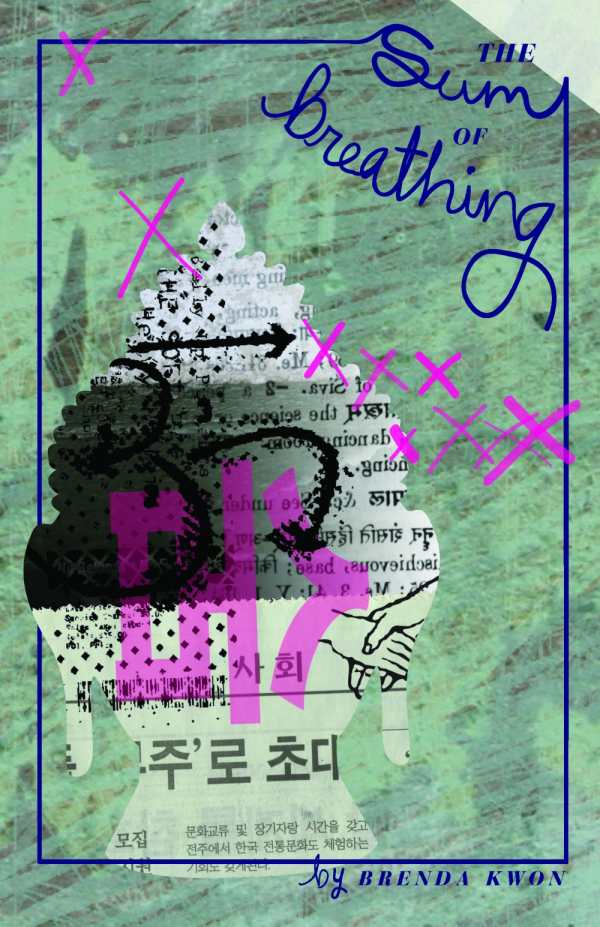
The Sum of Breathing
Kwon delicately creates an intimate space in which to show how her Korean heritage and her relationship with her mother shaped her identity.
Brenda Kwon’s collection of poems and short stories, The Sum of Breathing, explores the complexities of growing up Korean American in Hawaii and attending college in Los Angeles, miles away from her inherited motherland. Kwon tackles love, race, death, and family life with tenderness and understanding. Although the hybrid collection intertwines fiction with fact, it reads like an intimate portrait of Kwon’s life.
Much of the book addresses Kwon’s complex relationship with her mother, with whom she is very close. “Among other things / I inherit her solitude,” she writes in the poem “Inheritance.” As with most children, Kwon simultaneously loves and resents her attachment to her mother, describing it as “her stage in the story of our lives.” As the narrative evolves, so does Kwon. In adolescence, she writes, “My mother’s beauty began to hurt, building a resentment in me because I couldn’t draw her genes to show on the surface.” As the collection continues, she realizes she is more gifted at language and begins to develop a definitive, feminist voice in many of her later poems and stories.
Kwon is a master of language. She chooses her specifics carefully, making them come alive. When she describes sitting on the beach with her mother in “Mul,” she writes, “Once, we sat on a blanket in the last moments of daylight. Knife in hand, my mother spun an apple slowly, the long curl of skin that dangled so transparent that I could see the light coming through it in parts … so clean that I could reassemble the pieces into naked apples or pears.” Later in the book, the moment when Kwon accidentally wipes her hand, covered in her grandmother’s ashes, onto her dress is unforgettable: “Without thinking, I dusted my hand on my dress, leaving a dark grey smudge near my thigh. Horrified, I started to brush at it frantically.” The panic Kwon feels is palpable, which is true of other moments throughout the narrative when she describes her emotions.
Her honest writing is easily accessible and believable. Readers interested in the struggle between nature and nurture will find comfort and solidarity in this collection.
Reviewed by
Jacquelyn Lazo
Disclosure: This article is not an endorsement, but a review. The publisher of this book provided free copies of the book to have their book reviewed by a professional reviewer. No fee was paid by the publisher for this review. Foreword Reviews only recommends books that we love. Foreword Magazine, Inc. is disclosing this in accordance with the Federal Trade Commission’s 16 CFR, Part 255.
